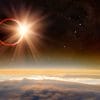Memory manipulation has been at the heart of science fiction for decades, but sci-fi has a long history of becoming science fact.
Sometimes scientists do things that seem impossible… and maybe even unnecessary. Turns out, researchers have been selectively erasing and implanting the memories of snails for years.
Why Snails?
It might come as a blow to our human egos but we’ve got a lot more in common with these slimy molluscs than you might think!
Sure, they have A LOT less neurons than us (billions and billions less) but the way snails’ nerves transmit impulses is surprisingly similar to mammals. It also helps that their neurons are so large, making observation easier.
“Human brains are so complex … so snails have a lot of advantages in that they have relatively simple nervous systems.”
Dr. David L. Glanzman, UCLA’s Department of Integrative Biology and Physiology
Glanzman’s team conducted a study in 2018 where they mildly shocked the tails of a species of marine snail called Aplysia californica – triggering a defensive curl reflex.

The more the researchers lightly shocked, the longer that reflex lasted: up to about 50 seconds.
Next, the team took samples of RNA from the sea snails’ nervous systems and injected them into the circulatory systems of another group of sea snails that hadn’t been exposed to any shock.
The result, 24 hours later, was a new group of trained snails. That is, after the injection, the new sea snails also performed the tail reflex about 40 seconds longer than usual – as if they remembered how to respond to a stimulus they had never encountered before.
This is a big deal because it challenges the traditional understanding that long-term memories are stored in the brain’s synapses.
“If memories were stored at synapses, there is no way our experiment would have worked.”
Dr. David L. Glanzman
Is there a reason for all this?
Whether it’s implanting or selectively erasing memories, some researchers see such results as a step towards alleviating the effects of diseases such as Alzheimer’s, or PTSD.
While many more studies are needed before we can go full Sunshine of the Spotless Mind, a greater understanding of memory storage could lead to greater opportunity to explore different aspects of memory.
Let’s just hope we can erase the memory of these experiments. Otherwise, when the snails rise up against us, we’ll know that we deserved it.
Forgive us, it was gaslighting in the name of science!
Read more: Human Ageing Process Reversed By Scientists for the First Time














